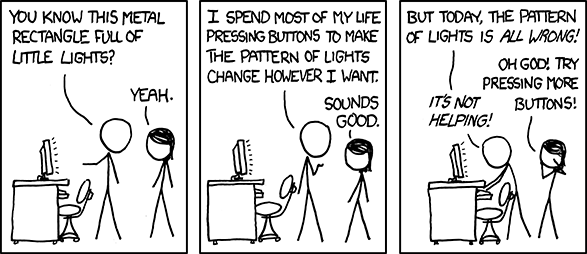All semester, I’ve been posting about online identities, online communities, and online reality, and I’ve tried to be intelligent and enthusiastic while doing so. But I’ve also been censoring myself. And for this last post, I am going to stop and try to be as authentic as possible.
Digital technology and social media might be in the process of intensely renegotiating cultural discourse, but they are also breaking the world. The real physical offline living world.
A few years ago, I would have been really interested in the potential for social media to be used for social change, in how the internet changes social discourse, in the stuff that Nigel talks about here. But now, I have trouble consolidating those ideas with who I've become. I can still talk about the social implications of Twitter or Chatroulette, but it feels like I'm writing on a superficial level because, fundamentally, I believe that modern technology is based on flawed premises. It will not save the world.
I am aware that I am extremely privileged to have access to a computer and internet, and I actively participate in social media as part of my day-to-day student life. But I don't think it's ultimately an honest way to spend my life. And I'm uncomfortable when further technology, like the iPad or Pattie Maes' Sixth Sense, are released, making our lives increasingly digitally integrated and increasingly virtual.
Technology has an intense biophysical impact. Even the small laptop I'm writing on has a history that traces through bitumen-thick Athabaskan river to the violence in Congo to the immense factories in China to the long shipping lanes cutting through the plastic-swollen ocean.
Yet technology also has an immense culture impact. While the internet is connecting us in new ways, our alienation from the natural world is accelerating. Our identities and languages are becoming more and more abstracted from our landbase. We are becoming further and further committed to a social reality that is inherently unsustainable, and there is an ecological crisis intensifying around us.





